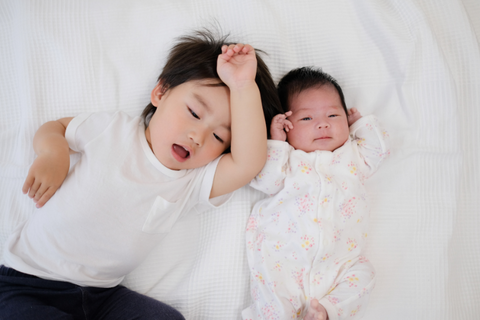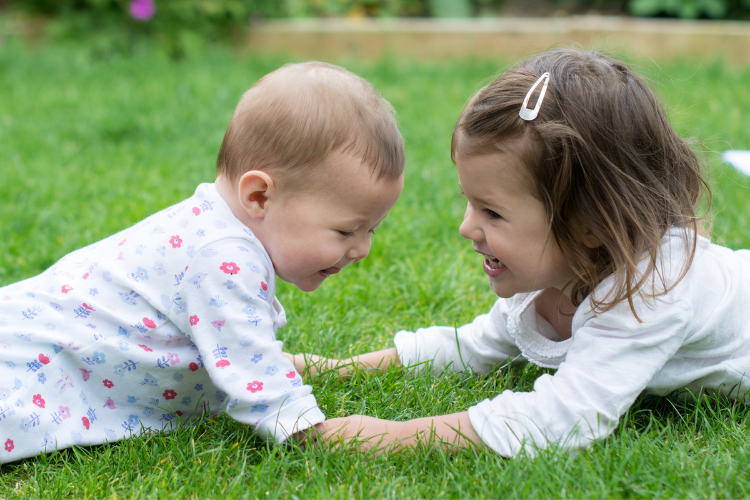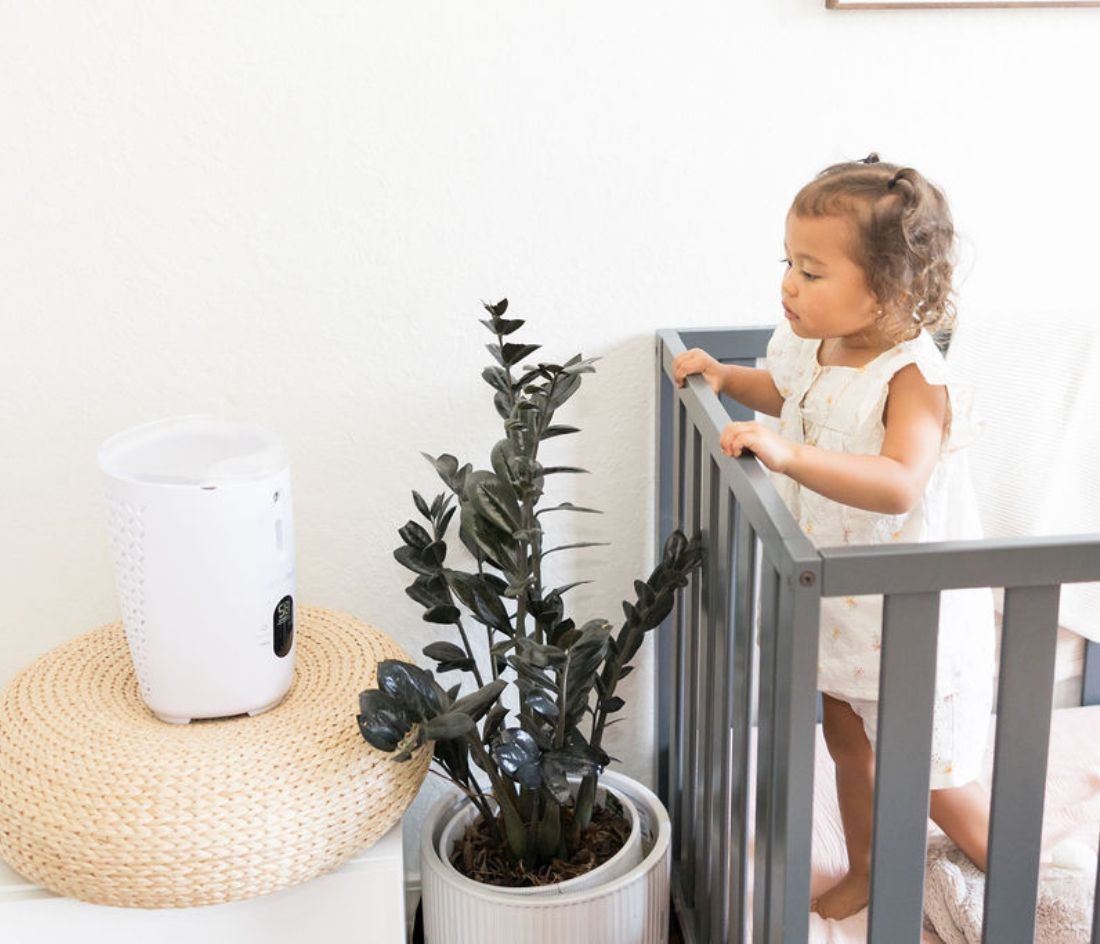Guest Post by Katy Fleming, MA, LPC, BSN, RN
Waking up with a runny nose, watery eyes, and continual sneezing has an impact on your little one. As the pollen count rises, you may notice an increase in symptoms of seasonal allergies.
Allergic rhinitis, or seasonal allergies, affects over 10.4% of children ages 0-5 years old. Which is significantly less than children ages 6-17, however still many young children are suffering.
We’ll review the symptoms of seasonal allergies in children and the differences between toddlers and babies.

How Do Seasonal Allergies Differ Between Babies and Toddlers?
The goal of treating seasonal allergies is to improve your child’s quality of life.
Allergic rhinitis may impact your child’s ability to participate in activities or remain asleep. In some children, it even leads to snoring at night.
Common Symptoms in Children
Each child is unique and will experience different symptoms of allergic rhinitis. Listed are some of the most common and expected seasonal allergy symptoms:
- Watery, red eyes
- Runny, stuffy nose
- Sneezing
- Itchy throat, eyes, and ears
Some may confuse seasonal allergies with the common cold as both involve runny noses and sneezing. Keep in mind that red, itchy, and watery eyes wouldn’t occur with a cold.
Alternatively, you may have a low-grade fever when struggling with a cold, however, it’s not typically associated with seasonal allergies.
Another aspect to remember— the common cold lasts 7-10 days typically. Seasonal allergies continue for several weeks to even months.
Additional Symptoms in Toddlers
Along with the symptoms discussed, toddlers may experience nose bleeds, continual ear infections, and breathing through the mouth.
If your toddler attends preschool or a daycare program, you may get reports of poor performance. As their symptoms increase, it becomes difficult to remain engaged in typical activities.
Children experiencing allergic rhinitis may have dark circles under their eyes and a crease on their nose from itching.
As stated, children with seasonal allergies may also suffer from ear infections. The swelling and inflammation related to allergic rhinitis lead to poor drainage and ear infections.

Allergic Rhinitis in Babies
When it comes to seasonal allergies, you may wonder how babies differ from toddlers. It’s rare for newborns or even infants to develop seasonal allergies.
To best understand the reasoning, think about how allergic rhinitis develops. You’re exposed to pollen from trees, weeds, and grass. After several exposures to these allergens, your immune system develops this overreaction.
Infants spend minimal time outside and simply don’t have enough exposure to pollen. Thus, seasonal allergies aren’t typically developed until ages 2-5 years old.
Your baby may develop an allergy to allergens within your home such as pet dander. If you’re suspecting allergic rhinitis, keep track of when your child is sneezing and showing other symptoms to identify possible triggers.
Of course, allergic rhinitis can truly develop at any age. So if your child is experiencing the symptoms discussed, speak with your child’s pediatrician.
If you struggle with seasonal allergies, then your child is more likely to, as well. Also, allergic rhinitis and asthma are commonly linked. These allergens such as pollen are a typical trigger of asthma.

Let’s Summarize
Seasonal allergies affect many children, however, most don’t develop these symptoms until ages 2-5 years old.
Some children may experience chronic ear infections and snore along with seasonal allergies.
Infants are highly unlikely to develop allergic rhinitis due to a lack of exposure to pollen.
If you have any questions or concerns, contact your child’s pediatrician to further discuss seasonal allergies.
Looking for more on seasonal allergies? Try these:
- Can Babies Have Seasonal Allergies?
- Why Are Allergies Worse At Night?
- 6 Foods That Help Calm Seasonal Allergies
- Spring Allergies Are Here: What Parents Need to Know
- Do You Know The Difference in Children's Allergy Medication?
As a licensed counselor and registered nurse, Katy approaches freelance writing with years of experience and a unique perspective. Alongside her partner, Katy loves to travel the world and embrace other cultures from volcanoes in Iceland to villages in India.
The Nozebot is a battery-powered suction device designed to clear nasal congestion in babies and children.



